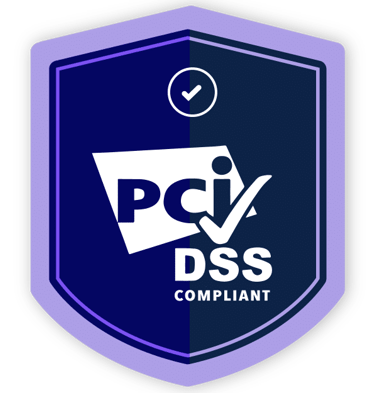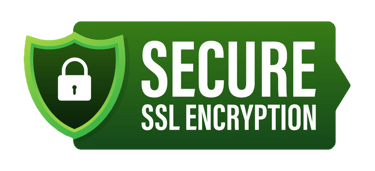How to Run a Home Health Case Conference That Meets CMS Compliance
Learn how to run home health case conferences that meet CMS compliance standards. Ensure proper documentation, care coordination, and quality outcomes


In home health, patient care requires collaboration across multiple disciplines—nurses, therapists, aides, social workers, and physicians. To ensure this care is coordinated, compliant, and patient-centered, agencies rely on case conferences. When structured well, these meetings improve communication, strengthen outcomes, and keep agencies aligned with CMS Conditions of Participation (CoPs).
At HealthBridge Consulting, we help agencies refine their case conference processes to meet compliance standards while making them practical and meaningful for staff.
CMS Requirements for Case Conferences
The Medicare Conditions of Participation (42 CFR §484.60) require home health agencies to:
Provide care in accordance with a physician-ordered plan of care (POC).
Ensure care is coordinated across all disciplines involved.
Conduct periodic reviews of the patient’s care plan and update it as needed.
Case conferences are a primary way agencies meet these obligations. Surveyors often look for evidence of interdisciplinary communication, updated POCs, and timely documentation that reflects case conference discussions.
Goals of an Effective Case Conference
A well-run case conference should accomplish three things:
Promote Care Coordination
Ensure all team members understand their roles, interventions, and the patient’s progress.Identify and Address Issues Early
Share updates on barriers to progress (e.g., medication adherence, wound healing, therapy tolerance).Support Compliance and Quality
Demonstrate that care is being delivered as ordered, adjusted when needed, and consistently documented.
Key Elements of a Strong Case Conference Process
1. Set a Regular Schedule
Weekly or bi-weekly case conferences are standard.
Choose a consistent time so staff can plan accordingly.
Use both in-person and virtual platforms to include all disciplines.
2. Prepare Ahead of Time
Distribute patient lists and relevant documentation before the meeting.
Assign a facilitator (often the Clinical Manager) to lead discussion.
Encourage staff to prepare key updates, including changes in patient status or challenges.
3. Structured Agenda
An agenda ensures focus and consistency. A typical flow:
Review each patient’s plan of care.
Report clinical updates and progress toward goals.
Identify barriers or risks.
Revise care plan if needed.
Document decisions and responsibilities.
4. Focus on Interdisciplinary Collaboration
Nursing, therapy, and social work input should all be considered.
Encourage active participation, not just reporting.
Ensure that family/caregiver needs are discussed when relevant.
5. Documentation and Follow-Up
Document all decisions and updates in the patient’s record.
Revise the POC if changes are made.
Assign follow-up tasks and confirm accountability.
6. Leverage Technology
Use EMR/EHR systems to streamline documentation and track action items.
Secure video conferencing tools can ensure full participation when staff are in the field.
Common Pitfalls to Avoid
Unstructured discussions – leading to wasted time and unclear outcomes.
Incomplete participation – when not all disciplines are represented.
Failure to update the care plan – decisions made in meetings must be reflected in documentation.
Minimal staff engagement – turning case conferences into “checkbox” activities instead of meaningful discussions.
How Case Conferences Support QAPI
Case conferences are not only about daily patient care—they also feed into the agency’s Quality Assurance and Performance Improvement (QAPI) program. Trends discussed (falls, readmissions, wound healing delays, patient satisfaction issues) should be tracked and analyzed for systemic improvements.
This integration demonstrates to surveyors that your agency goes beyond “checking the box” and is actively driving better outcomes.
How HealthBridge Consulting Can Help
At HealthBridge Consulting, we provide consulting and intellectual property solutions to strengthen case conference processes. Our services include:
Case Conference Templates and Agendas aligned with CoPs.
Training Programs for Clinical Managers and staff on effective facilitation.
Documentation Tools to ensure discussions are captured and POCs are updated correctly.
Mock Survey Reviews to test compliance and identify gaps.
QAPI Integration strategies to connect case conferences with performance improvement initiatives.
With HealthBridge Consulting's guidance, agencies can transform case conferences into a compliance tool and a quality driver.
An effective case conference process is central to delivering coordinated, compliant, and high-quality home health care. By creating a structured, collaborative, and well-documented process, agencies not only meet CMS requirements but also improve patient outcomes and staff communication.
If your agency is struggling to make case conferences efficient and meaningful, HealthBridge Consulting is here to help. Our expertise ensures your processes are compliant, streamlined, and tailored to your agency’s needs.
Contact HealthBridge Consulting today to strengthen your case conference process and drive better care outcomes.





